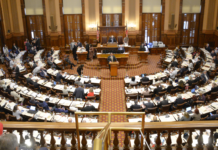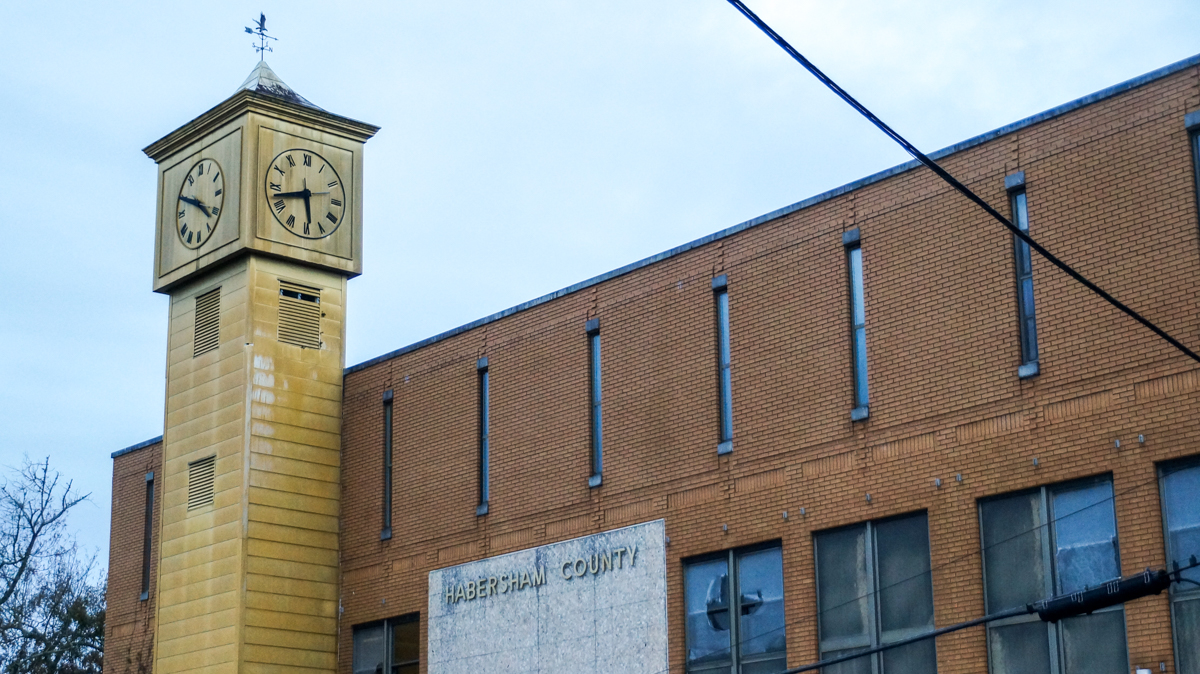
Citizens have asked what to do about the old county courthouse for years, and a developer in Clarkesville has the topic front and center once again for the county to mull over.
The old county courthouse, built in 1963, has sat vacant since 2019. The county built its current courthouse in 2013, and a new administration building in 2019, rendering the old courthouse useless.
The courthouse had been slated for demolition for months before the county commission voted to put it on hold in June, following a presentation from Clarkesville-based designer Lew Oliver. While many disdain the 70’s-style yellow brick exterior and brassy- gold bell tower of the old courthouse, there are those who prefer to see it renovated.
Commissioner Bruce Harkness told the commission at that time that there were people interested in buying the courthouse— something he still says today.
Previous interest
The courthouse has a history of receiving interest and bids, but ultimately, no sales have gone through.

In 2019, the commission approved a contract to sell the old courthouse to Wayne Enterprises South LLC for $1 million. The developer planned to renovate the courthouse into apartments, but the deal fell through in 2020.
Commissioner Bruce Harkness has told the commission and public multiple times that he is aware of offers for the courthouse property but did not reply to a follow-up request for comment to clarify those offers. County officials also did not provide further information on Harkness’s claims.
Commission Chairman Bruce Palmer and Commissioner Ty Akins both tell Now Habersham that they aren’t aware of any offers for the courthouse.
“To my knowledge, we do not have any written offers on the old courthouse,” Palmer said. “We had people look at the old courthouse that once they looked at it they were no longer interested.”
So while the courthouse continued to sit empty, Oliver, whose office is across from the vacant building, drew up a plan.
Clarkesville’s plans for development
Oliver, an Atlanta designer who based his firm in Clarkesville, presented the City of Clarkesville with plans to renovate their downtown in the summer of 2020. While his plans go above and beyond the city’s current scope of possible work, his plans have received awards and piqued the interest of the city council.
“He [Lew Oliver] approached us about a concept of redoing the downtown,” Clarkesville City Manager Keith Dickerson tells Now Habersham. “We said ‘we really don’t have funding for that.’ He said they would redesign the downtown, and the only thing we’d have to pay for is the artist’s renderings from it. We felt like we could jump on board with that.”
Dickerson says plans like Oliver’s are usually expensive, and what the city ended up paying was “relatively cheap.”
Oliver presented his plan to the Clarkesville Council and citizens in the summer of 2020.
Dickerson found more plans with ideas similar to Oliver’s in city documents from 2016, where the council had discussed making changes to the park outside the courthouse to make the gazebo the center of Downtown Clarkesville again.

“This is not the first time this idea has come up,” Dickerson said. “The idea is to refocus the energy back to the square again, where it’s kind of lost as you’re just driving through right now. It’s just a pass-through, where if you have to go around [it], it tends to make it more of a focal point and we all sort of agreed to that. But it takes a long time to work with GDOT to make something like that happen.”
While Oliver’s plans may be something the city can look at doing in the future, Dickerson says they aren’t something the city can finance now. Oliver’s plan for the courthouse, though, is something that the city feels is achievable through the development authority.
The Habersham County Development Authority
Oliver plans to renovate the courthouse into apartments, and to make that happen, the city wants to turn the ownership of the courthouse over from the county to Habersham’s Development Authority.
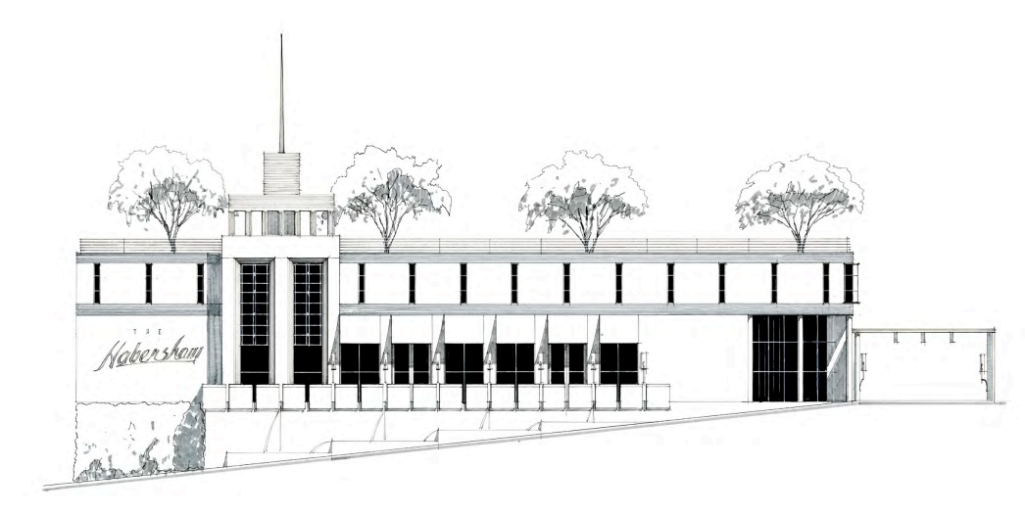
“They have different conduits and things that they can do with the DCA [Georgia Department of Community Affairs], the state,” Dickerson says. “There are other things that they can get, they can even be a conduit for low-interest loans. And the county really can’t do that, just like the city really can’t do that. But our downtown development authority . . . can do that.”
The city sent a memorandum of understanding (MOU) to the county commissioners in mid-March to transfer the ownership of the courthouse to the development authority, something they thought the commission would support.
But it didn’t get the reaction they were expecting.
Concerns from the county commission
What the city expected to be support for the MOU at the March commission meeting dwindled when Commissioner Harkness pointed out that the executive summary, a rundown of an item the commission votes on, said that the development authority “would require the gazebo to be relocated.” Dickerson says that wasn’t part of the MOU at all.
“That was not talked about in the memo,” Dickerson said. “That was not discussed at any point in time . . . that was never discussed with us. We didn’t know anything about it. And my understanding is somehow it inadvertently got put in there.”
Commissioner Harkness refused to go forward with the MOU due to the statement in the executive summary.
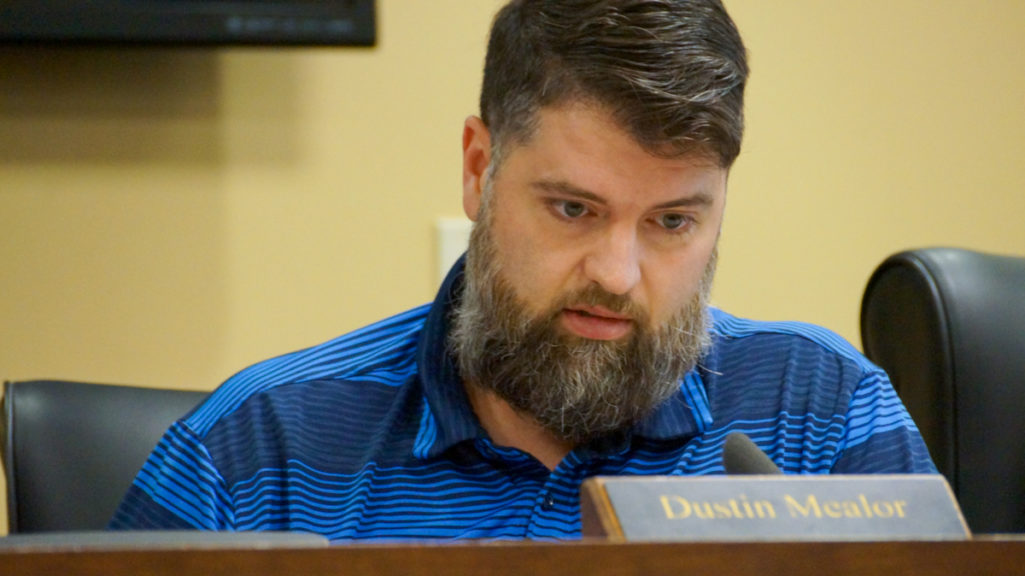
What the MOU does state, however, is that the development authority can sell the courthouse to Oliver for $10 if he agrees to develop it to the standards they set forth. Something Commissioner Dustin Mealor wasn’t sure about.
“I struggle . . . with the fact that . . . the commission itself has gained a reputation of jumping into projects that cost our citizens by way of the initial investment in the . . . project falling though, to the point where we then have to sell property,” Mealor told the commission during their March work session. “I feel like there is a consensus, at least among the people I’ve spoken with, that there is zero support for not just giving the property [away]— and I get the developmental prospects of it— but it’s the prospect of giving it to someone for no value whatsoever and giving it to a wealthy developer who is just going to get wealthier off of the project.”
Harkness shared similar sentiments, that they would be giving a piece of taxpayer-owned property over to a private entity. But Palmer argues that the way it sits, it isn’t doing anything for the taxpayers, and it isn’t generating any tax revenue to pay for services for citizens.
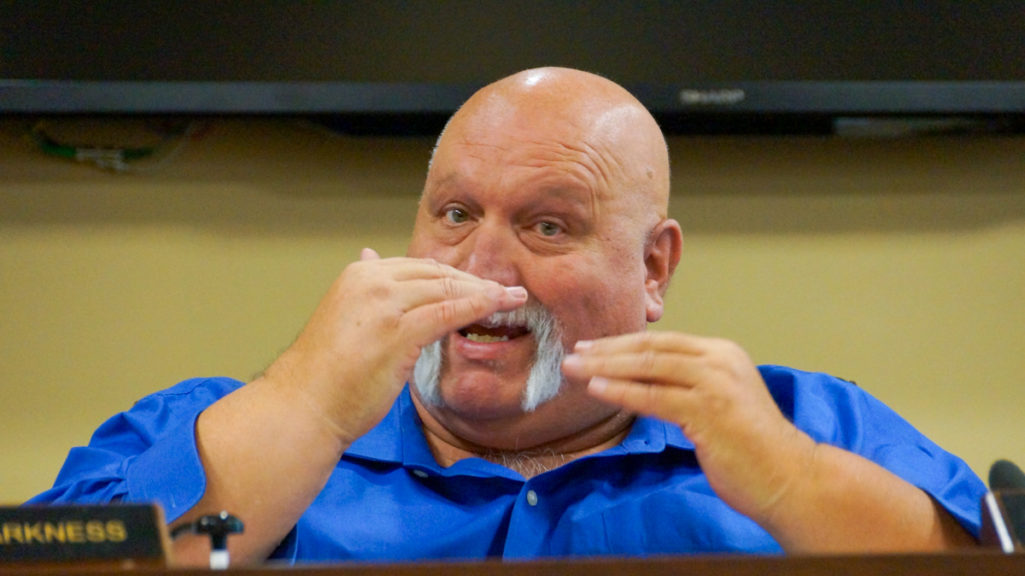
“In my opinion, it’s much better to transfer to the development authority,” Palmer tells Now Habersham. “They are able to work with a developer to encourage [the] development of the property into something that will be a benefit to the county, city and the citizens. If the county sells it then there is nothing we can say about what happens to it. It could sit empty for years.”
The renovations to turn the courthouse into apartments are estimated to cost $6.5 million, and the property would remain on the county’s tax rolls during, and after, the renovations.
The commission originally voted down accepting the MOU 3-2, with Akins and Palmer in favor. The commissioners then voted to table the measure until their April 18 meeting, which passed 3-2, with Harkness and Commissioner Jimmy Tench in opposition, to further research the MOU and Oliver’s plan.
Transferring the property
County Manager Alicia Vaughn says that everything moving forward with the building process would be negotiable, and at the end of the day, all the MOU does is allow the development authority more opportunities to develop the property.
With two commissioners in favor, the city thinks there’s a chance to gain the favor of the other sitting commissioners. At the end of the day, though, Dickerson says that if the transfer to the development authority doesn’t work, it can be transferred back.
“The biggest fear of this was if . . . a private individual buys this and they don’t have enough money to do anything with it, it’s just up for sale again,” Dickerson said, alluding to the courthouse’s past sale failures. “We’ve got one plan right now, my understanding is there is one plan and some ways to make it work. Let’s just see if they can go with it. It’s not something that can’t be undone. If they failed to meet the requirements of the development authority, then it can be stopped.”





